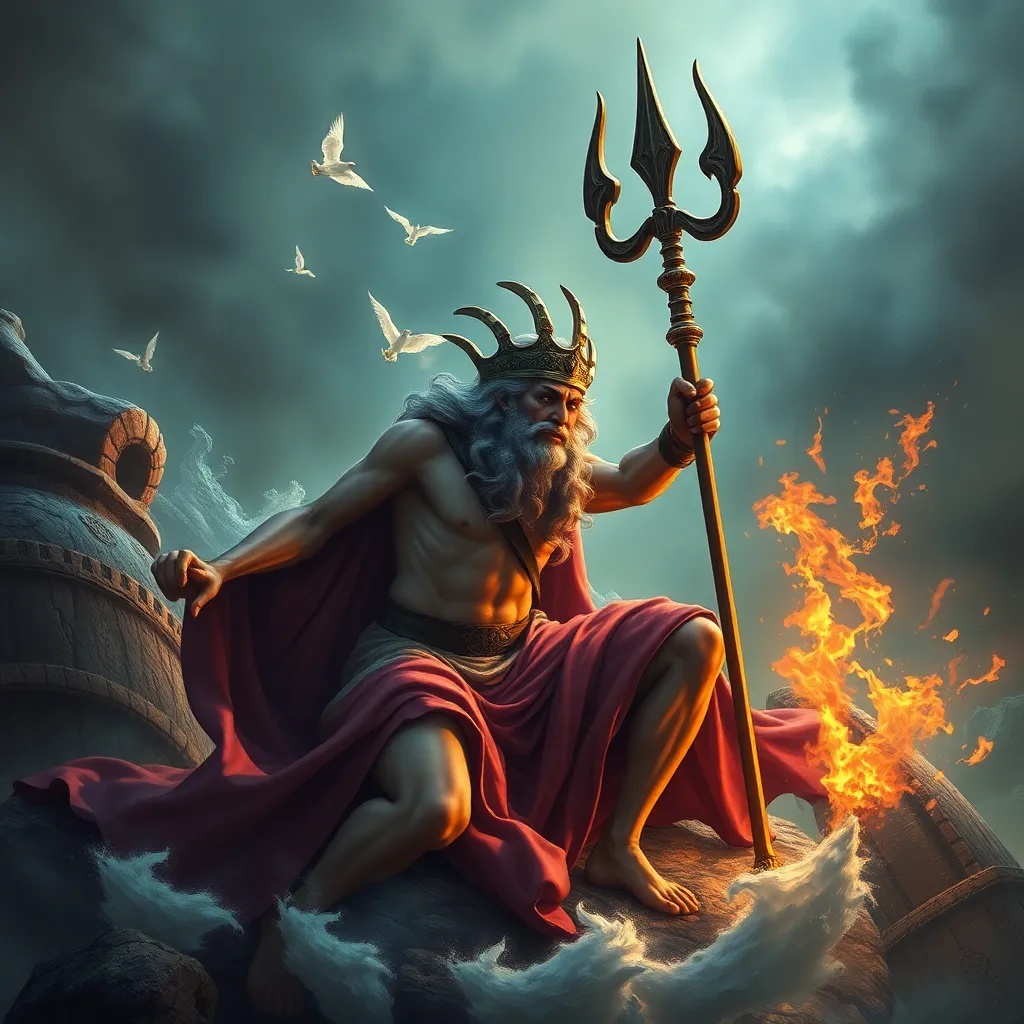The Role of Hades in the Myth of the Argonauts
I. Introduction
The myth of the Argonauts is one of the most enchanting tales in Greek mythology, chronicling the adventurous journey of Jason and his band of heroes as they seek the elusive Golden Fleece. This quest not only showcases extraordinary feats of bravery but also intertwines with themes of fate, heroism, and the supernatural. Central to this narrative is Hades, the god of the Underworld, whose influence looms large over the journey of the Argonauts.
This article aims to explore Hades’ role within this epic tale, examining how the god of the Underworld interacts with the heroes and the implications of his presence throughout their quest.
II. The Argonauts: A Brief Background
The Argonauts were a legendary group of heroes in Greek mythology, led by Jason in his quest to retrieve the Golden Fleece from the far-off land of Colchis. Each member of this band possessed unique abilities, making them formidable adventurers. Notable Argonauts included Hercules, Orpheus, and Atalanta, all of whom contributed to the group’s strength and resolve.
The quest for the Golden Fleece is set against a rich tapestry of mythological context. It symbolizes not only wealth and kingship but also the pursuit of glory and the fight against insurmountable odds. Key themes in this myth include:
- Bravery and heroism
- The bonds of friendship and loyalty
- The supernatural and its interference in human affairs
III. Hades: The God of the Underworld
Hades, one of the three principal gods of Greek mythology, presides over the Underworld, a realm of the dead. He is often depicted as a stern and unyielding figure, responsible for maintaining order among the souls that enter his domain. Hades is associated with various attributes, including:
- The Helm of Darkness, granting him invisibility
- The Bident, a two-pronged staff symbolizing his authority
- The three-headed dog, Cerberus, who guards the gates of the Underworld
The Underworld holds significant meaning in Greek mythology, representing the final destination for souls and the afterlife’s mysteries. Hades’ relationships with other gods are complex, often characterized by a sense of detachment from the affairs of the living, yet his influence is felt profoundly in the mortal realm.
IV. Hades’ Influence on the Argonauts’ Journey
Throughout their quest, the Argonauts encounter various elements associated with death and the Underworld. Hades’ influence manifests in several ways:
- Encounters with the Dead: The Argonauts face the specters of the past, including the ghost of the hero Achilles.
- Symbolic Representations: The quest often reflects themes of life and death, with the Golden Fleece acting as a metaphor for immortality and glory.
- Fate and Prophecy: The Argonauts’ journey is riddled with prophecies that connect their fate to Hades’ domain, emphasizing the inescapability of destiny.
V. The Role of the Underworld in Greek Heroism
The Underworld is not merely a place of death; it is integral to the journey of heroes in Greek mythology. The encounters with Hades and the specters of the dead often serve as crucial turning points in a hero’s journey. For the Argonauts, these experiences shape their character development in several ways:
- Confronting Mortality: The fear of death and the unknown propels the Argonauts to act bravely.
- Transformation: Experiences in the Underworld lead to personal growth, testing their resolve and commitment to their quest.
The relationship between fear of death and heroic actions is a recurring theme, illustrating that true heroism emerges through the confrontation of one’s mortal fears.
VI. Key Episodes Involving Hades in the Argonaut Legend
Several key episodes in the Argonaut legend highlight Hades’ role:
- The Descent into the Underworld: During their quest, the Argonauts make a significant descent into the Underworld, where they encounter the souls of the deceased, including the tragic figure of Medea’s brother, Apsyrtus.
- The Golden Fleece and Hades: The Fleece itself has ties to Hades, as it is believed to possess magical properties that can grant immortality, linking it to the realm of the dead.
- Impact on Outcomes: Hades’ interventions, through prophecies and omens, directly affect the challenges the Argonauts face and their ultimate success or failure.
VII. Interpretations of Hades’ Role in Various Adaptations
Hades’ character and role have evolved through ancient texts and modern adaptations:
- Ancient Texts: In works like Apollonius of Rhodes’ “Argonautica,” Hades is portrayed with a mix of reverence and fear, reflecting the complex nature of death in Greek culture.
- Modern Adaptations: Films and literature often reinterpret Hades, sometimes depicting him as a villain or a misunderstood figure, contributing to a more nuanced understanding of his character.
This evolution in perceptions showcases how Hades’ role has been recontextualized, reflecting changing cultural attitudes towards death and the afterlife.
VIII. Conclusion
In the myth of the Argonauts, Hades serves as a powerful symbol of the inevitability of death and the mysteries of the afterlife. His influence is woven throughout the narrative, shaping the heroes’ journey and their encounters with fate. The significance of Hades extends beyond this tale, reflecting broader themes in Greek mythology related to heroism, mortality, and the supernatural.
Ultimately, the enduring legacy of Hades in the myth of the Argonauts prompts reflection on the human condition, the nature of bravery, and the ever-present shadow of death that looms over all heroic endeavors.




